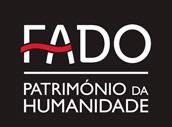To implement an Educational Plan aiming at a gradual transversal integration of the contents related to the universe and culture of Fado on all academic levels – from year 1 to year 12 -, thus combining the academic and scientific points of view with the knowledge and true participation of the Fado community: singers, musicians, authors, and musical instruments’ manufacturers.
Actions:
Museu do Fado School: Workshops on Portuguese Guitar, Fado Viola, Fado Poetry seminars and Singing workshops;
Museu do Fado workshops: Talks and workshops aiming at creating a steady venue for the debate and reflexion within the fado community;
Singing Tours of Museu do Fado, featuring interpreters and musicians from different generations.
Portuguese Guitar manufacturing: to support the Portuguese guitar manufacture, thus ensuring this know-how is safeguarded and conveyed, namely through:
Scholarships for more than a year awarded to trainees selected by the Portuguese guitar manufacturers Gilberto Grácio and Óscar Cardoso;
The creation of a Portuguese guitar manufacture workshop in the historical area of Alfama, close to Museu do Fado;
Temporary exhibitions at Museu do Fado dedicated to the craftsmanship of the Portuguese guitar manufacturers (guitarreiros), as well as approaches to Fado in the portuguese fine arts;
The establishment of education plans for the different education levels (Year 1 to Year 12), namely through:
The creation of pedagogical material;
Training seminars for trainers/teachers;
The implementation of an educational pilot project in schools in Lisbon and its replication at a regional and national level;
The promotion of regular school field trips to the Museu do Fado in close connection with the Fado community that plays an active role as educational agent;
Support given to Performing Arts Schools including Fado in their pedagogical program, both at a local and national level;
Technical and scientific expert training in museum and archive research practices, through graduation and post-graduation university programs;
Organising an International Fado Congress – to be held every two years – intertwining academic perspectives with the knowledge of composers, interpreters, poets and other agents involved in the creation and dissemination of this musical genre;
Training the Fado community through a network of local associations and clubs, promoting seminars dedicated to the good practices of preservation and maintenance of the heritage of Fado;
Scheduling conferences on Fado with researchers in different fields.








